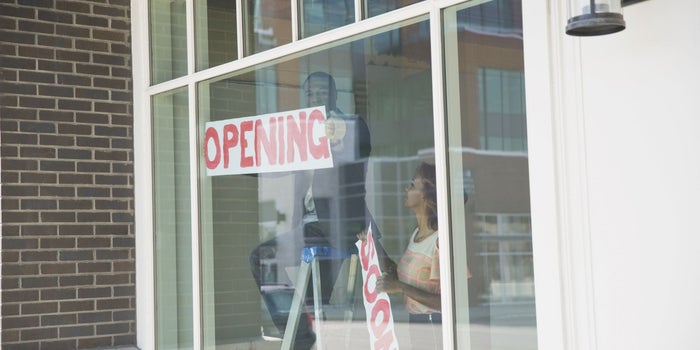
If you have reached a point where you are able to contemplate expanding your business, there are several options to consider. Some expansions focus on the existing business, seeking to increase the physical size (for example, by moving to new premises) of the company, or seeking to increase their product line or service offering in order to appeal to a new customer base.
Other forms of expansion are arguably ‘truer’ to the term expansion, spreading the business across a wider geographical area in order to appeal to new customers and grow the business’ reputation along national rather than local lines. Achieving such a goal tends to require opening a second business location; a strategy that is undeniably high-risk, but offers incredible rewards to companies that are able to get it right. If you have contemplated opening a second location for your business, then here’s a deeper look at all the questions you will need to ask – and answer – before taking such a step…
Question: “How will time be made for the new branch?”

8 Things to Consider Before You Open a Second Location
As we will soon discuss in more detail, opening a second business location requires a huge amount of time. There is so much research to do, and so many decisions that need to be made, that the endeavor can quickly come to dominate much of your working life.
It is therefore very important to look at your schedule and make sure you have the time available to fully dedicate yourself to the process before you begin. If you are concerned that your existing schedule is not conducive to this, then you may want to consider hiring extra staff and delegating more of your workload so that you are free to focus your energy on the new phase of your business.
Question: “How do I choose the right location for my second branch?”
There are several factors you will need to consider when seeking to answer this question, the first of which focuses on your existing business: is there anything about your current location that is vital to your company’s success? For example, if you sell scuba diving supplies, then it’s reasonable to assume you are based near the seaside or a large body of water – and this location will have been instrumental in ensuring your business flourishes. If you’re choosing a new location, you’ll need to find an area that offers the same benefits as your current location. So, to return to the example, you would look for a different seaside area for your second branch.
Simply securing the same environment as your existing business is not, however, the only element to consider: you will then need to research your potential new market in depth. You may, for example, find a location that works well in principle, but has local, more established competitors that your company does not face in its existing location. For example, you find a new seaside location for your scuba supplies company (which is good) but there are several independent scuba supply stores already operating in the area (which is problematic). A location should only be considered if it is a good fit for your business, and it is reasonable to expect there is demand from customers in the area that is not currently being met by another business.
Question: “Is my primary business financially robust enough to support a second location?”

Opening a Second Location? Here’s What to Keep in Mind.
When a new business location is opened, it is far from unusual for that side of the business to rely financially on the primary business during its first few months – or even years – of life. This, inevitably, places significant strain on the primary business, which now becomes responsible for funding both the main company and the new location.
This is a burden that many businesses find extremely troubling, and – unfortunately – it is one that can continue for years. You may even find yourself facing a scenario where the second location never becomes truly self-sufficient, and instead has to rely on the main business in order to continue operations.
As a result of the above, it is absolutely crucial that your primary business is as robust as it can possibly be. Expanding to a second location is not a choice that should be considered to “revive” a flagging business; it should only be attempted from a position of strength, when you are 100% certain that your existing business can support the weight of a new branch until it finds its own feet. A full financial audit of your existing company is therefore strongly advised before you begin to plan for a second location.
Question: “How will the new business location be staffed?”
The first element to consider when seeking to answer this question is upper management; the people who will be responsible for running the business and getting it off the ground in the new location. In this regard, familiarity with the existing business is of paramount importance. You could personally decide to move to the new location before returning to the primary location in time, or remain there for the foreseeable future. Alternatively, you could ask existing, trusted staff members if they would relocate to the second location – though even with this option, you will still need to take an advisory role and be heavily involved in the process throughout.
With the decision regarding the management team for the new branch made, you will then need to be able to hire staff members to work on the second branch of your business. One of the most efficient ways to do this may be to hire a recruitment agency who are familiar with the local employment market; doing this should allow you to build a good “starter staff”, and you can then implement in-house hiring practices when the new branch is settled and fully operational.
Question: “What are the rules and regulatory requirements the company will need to abide by in its new location?”
Opening a second business location does not necessarily mean that you can replicate the process used to open and operate your business in its primary location. While much of the work required is very similar, there are still differences that you may encounter depending on where you have moved from and to.
Legal and regulatory requirements that businesses have to comply with, for example, can differ on a state-by-state basis, so these will need to be researched and incorporated into the core of your second business. It’s often best to simply start from scratch; assume that all regulations are different in your new location, and then work to ensure all compliance requirements are met.
Question: “How can I ensure each branch is able to effectively communicate and share data?”

The 5 smartest ways to connect multiple offices
Branches of a business should be seen as cogs in the same machine rather than completely independent systems. Each branch needs to be able to communicate with the other, and share data and central resources, effectively in order to ensure both are able to flourish, often with hundreds of miles between each branch’s physical location.
For businesses of yesteryear, ensuring the above was incredibly challenging – but has become far more accessible in the digital age. It’s now possible for all employees, regardless of location, to communicate with relative ease thanks to video conferencing, and data sharing is simpler than ever before thanks to cloud-based systems; and with the use of a failsafe SD-WAN, you can be sure that both branches can use such technological innovations with complete safety and security. You will, however, need to research and ensure that these systems are in place from day one of the new branch’s existence, so that the newest cog can begin to turn in unison with the main machine right from the get-go.
Question: “How will the new branch be marketed?”

When to Open a Second Location
In the long-term, your second business location can be marketed in much the same way as your primary business. You may want to make a few tweaks here and there to reflect slight differences in customer demographics that you may notice when the second branch has been up and running, but the general approach may be much the same.
In contrast, the short-term marketing needs of your second business location will be very different from the core company. You’ll need to plan a complete marketing blitz that helps to launch your business and ensure it receives appropriate attention from potential customers. Treat the effort much as you did when launching your company for the first time; run campaigns, look for local press attention, and so on. While your second business location is not a “new business” in the very essence of the term, it should be treated as such given you are entering an entirely new market, and that many potential customers will not necessarily be familiar with your existing company; facts that your marketing approach needs to reflect.
In conclusion
The questions above should help to shape your decision-making, and ensure you know which areas require the most focus, as you embark upon the process of expanding your company with a second business location.




